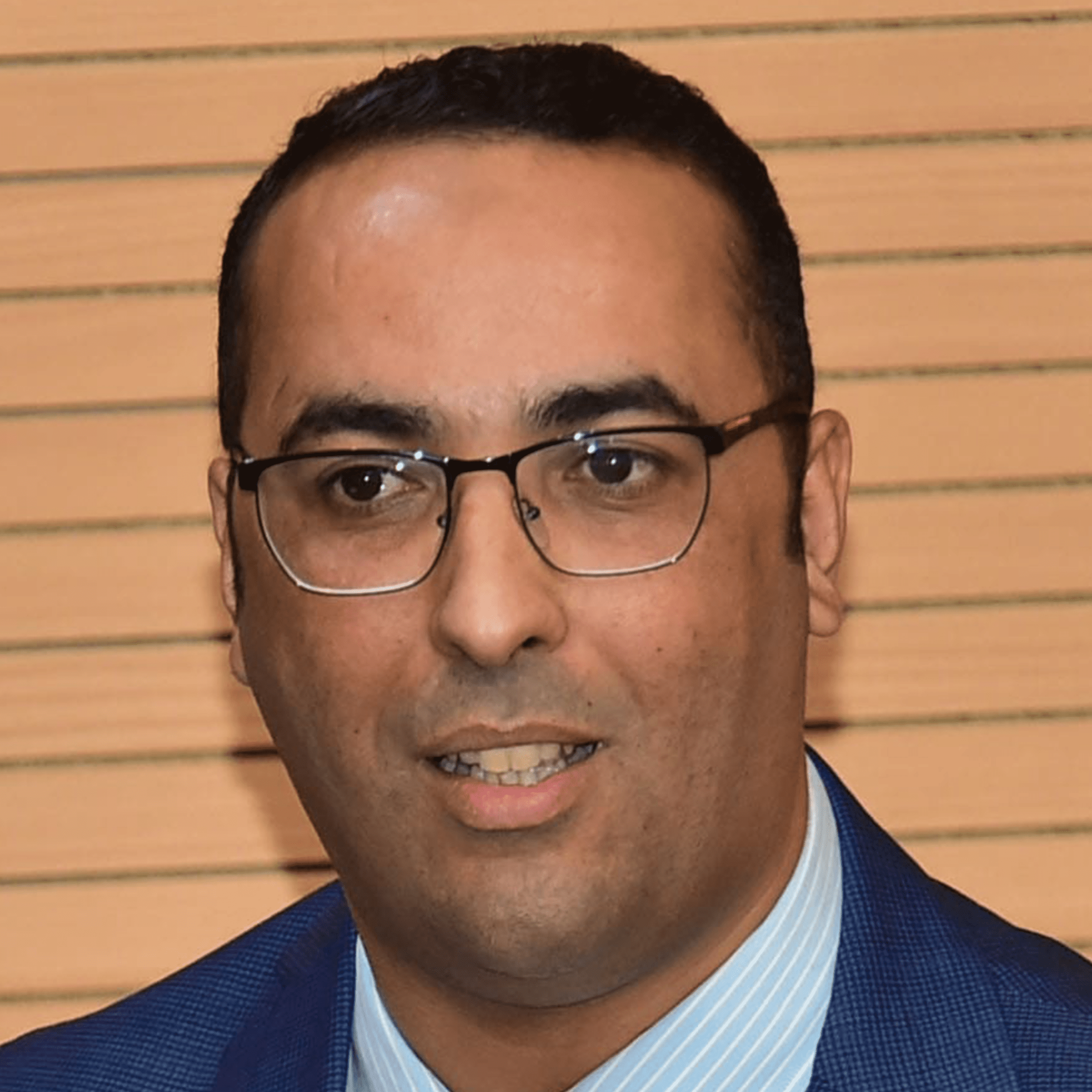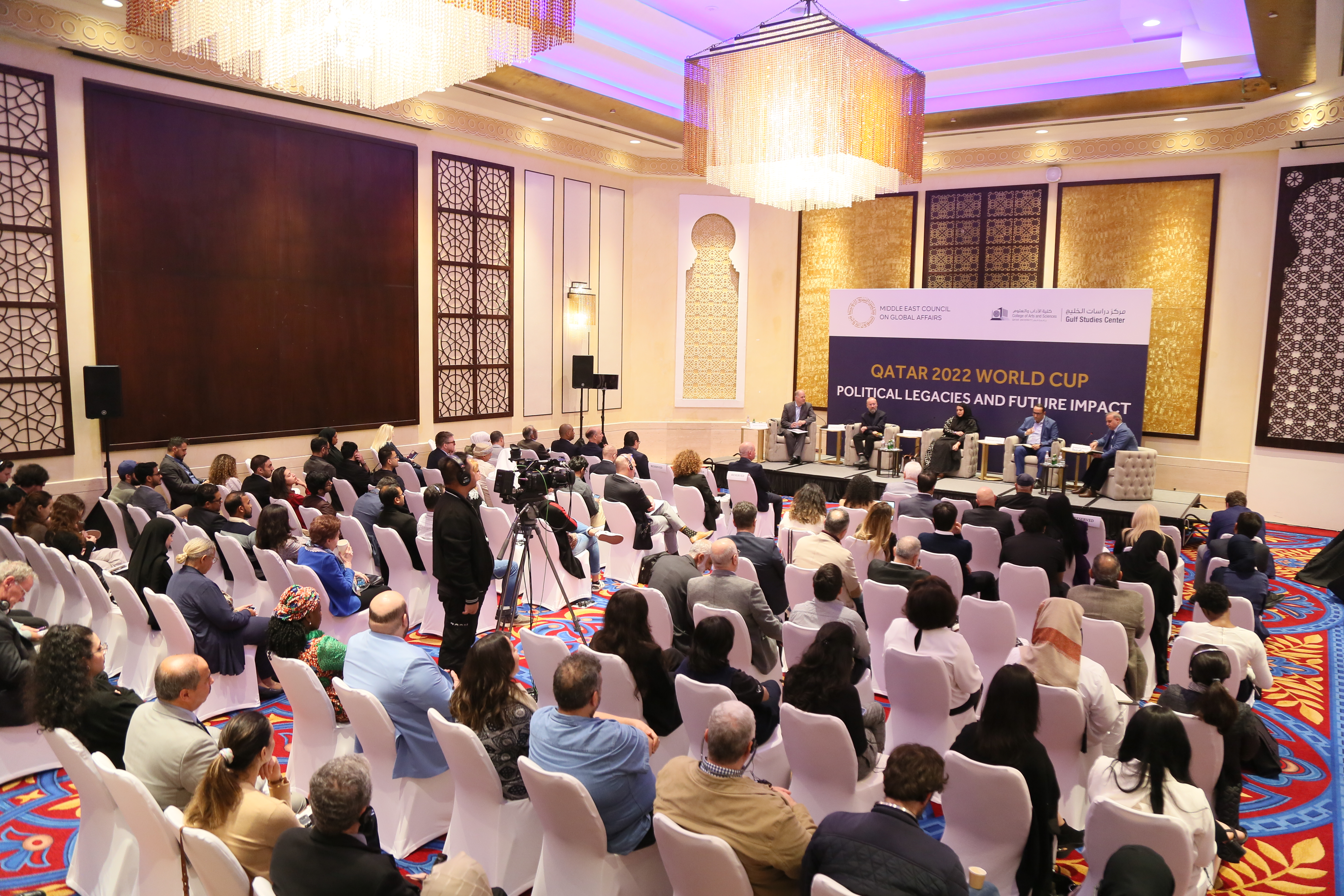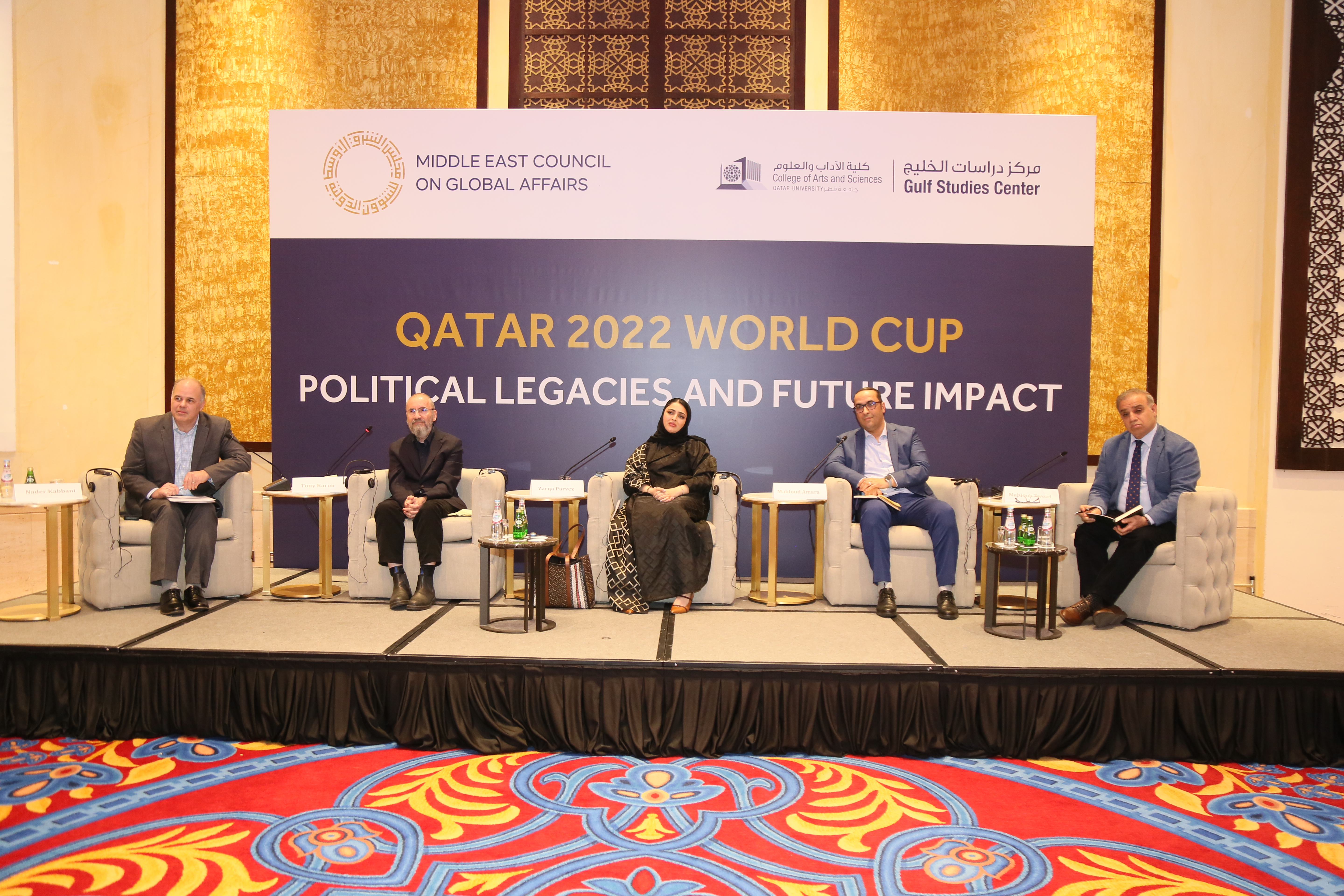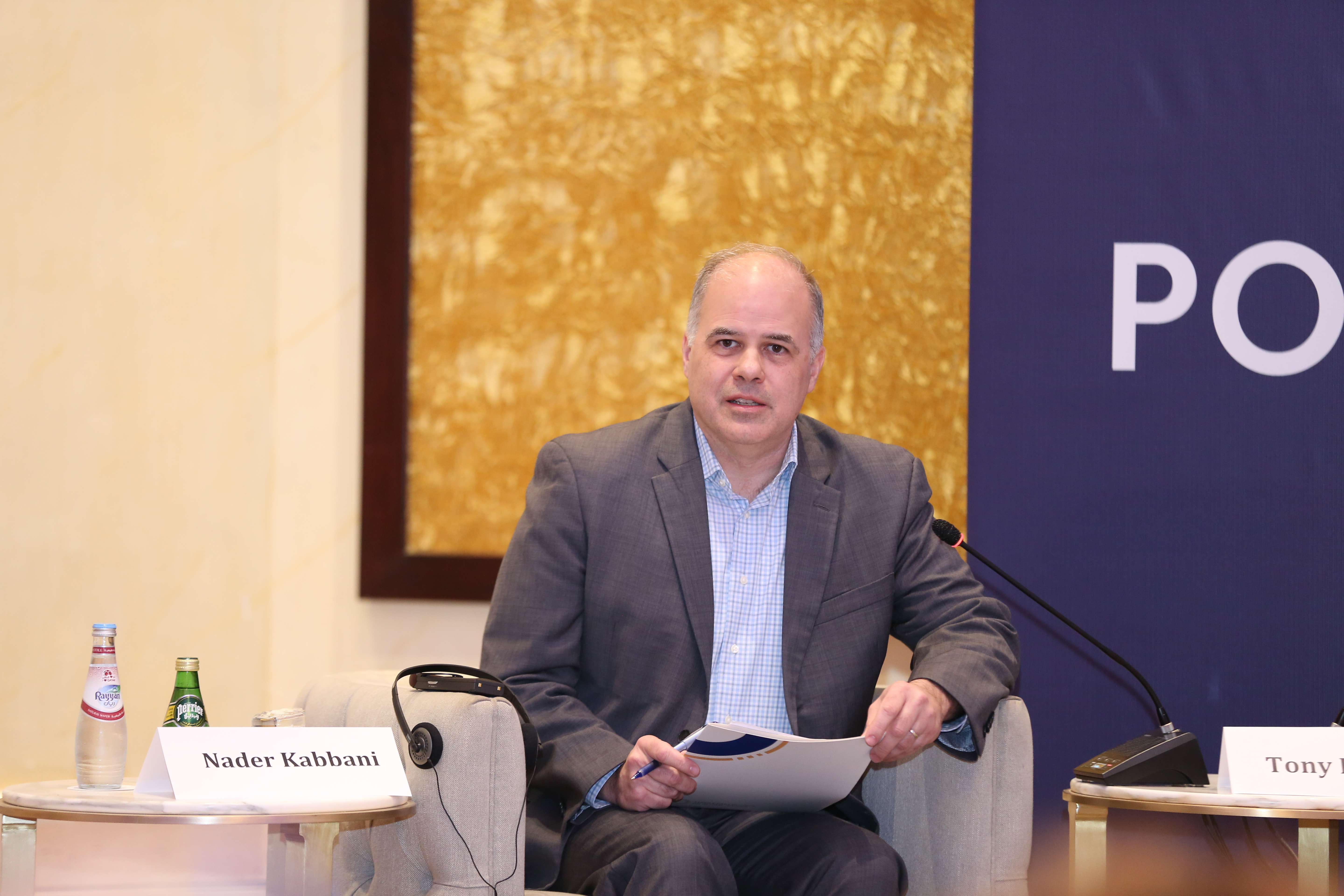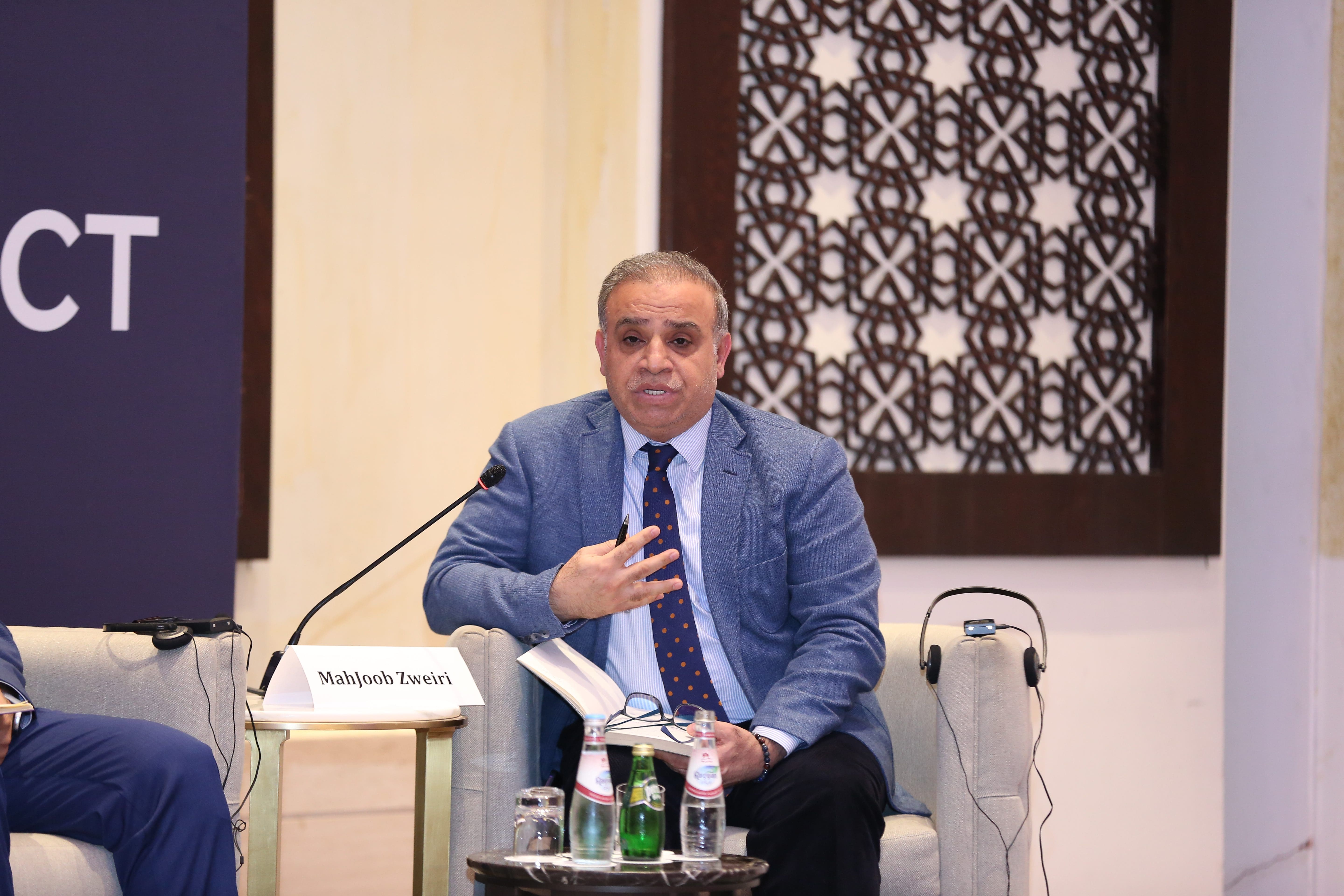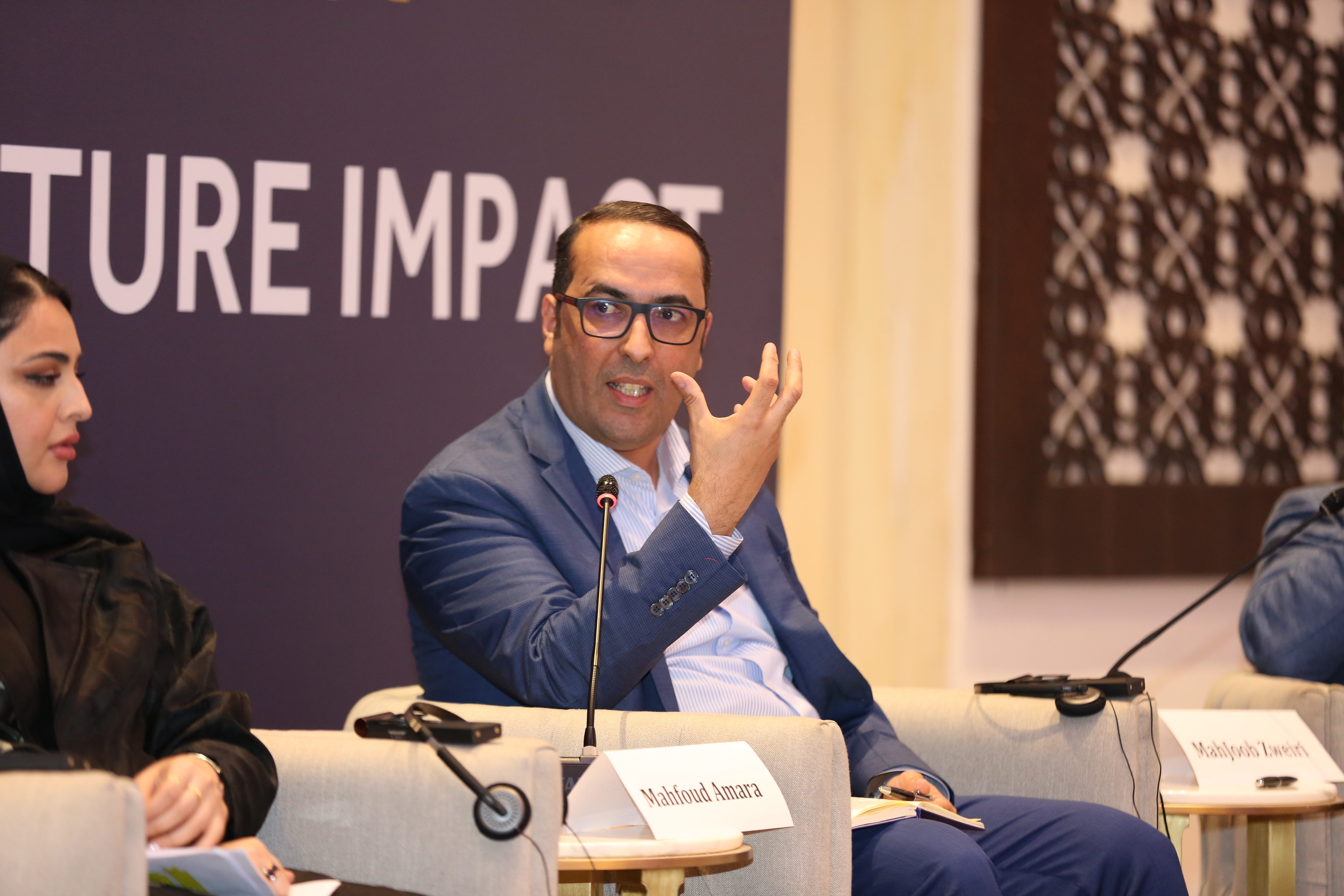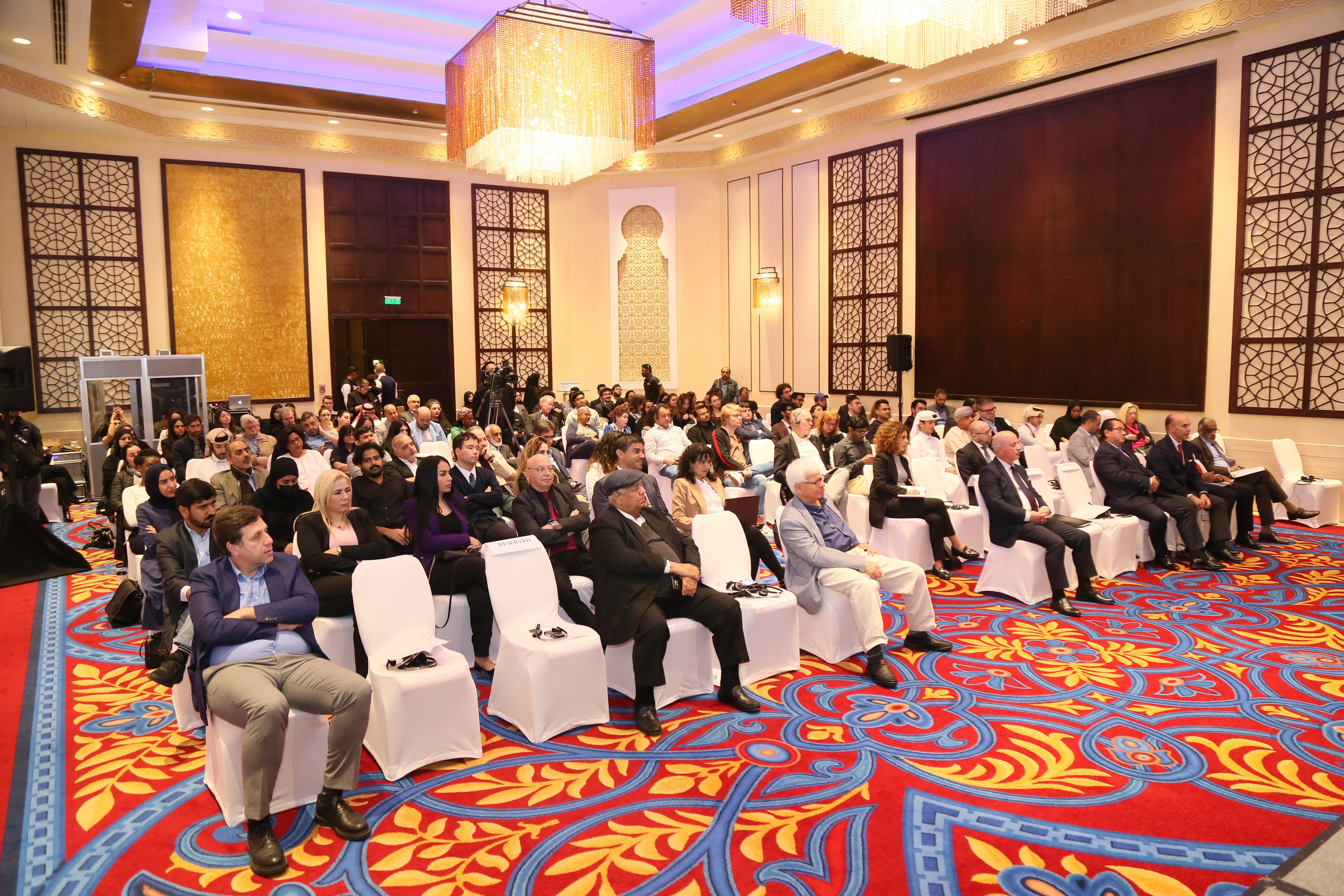Qatar 2022 World Cup:
Political Legacies and Future Impact
January 31, 2023
Summary
The Middle East Council on Global Affairs (ME Council), in partnership with the Gulf Studies Center at Qatar University, held a public event on January 31, 2023 to reflect on the political legacies and future impact of the FIFA World Cup Qatar 2022. The World Cup drew international attention to Qatar and provided a site for local, regional, and global political action, including political expressions both on and off the pitch, as fans, footballers, and workers used the World Cup as a powerful public platform through which they expressed their solidarity with, as well as objection to, issues as diverse as the Palestinian cause, the protests in Iran, migrant worker welfare, and other human rights issues. Nader S. Kabbani, senior fellow and director of research at the ME Council, moderated the discussion. The distinguished panelists included Zarqa Parvez, adjunct assistant professor of government at Georgetown University in Qatar; Tony Karon, editorial manager at AJ+; Mahjoob Zweiri, director of the Gulf Studies Center and professor of Gulf Studies at Qatar University; and Mahfoud Amara, associate professor in sport management and social sciences at Qatar University.
The discussion first highlighted the interplay between the 2022 World Cup and regional diplomatic relations. Zweiri argued that Qatar faced organizational challenges in the lead-up to the World Cup since it was embroiled in regional political tension. This was the first World Cup hosted by an Arab and Muslim country, and Zweiri asserted that the legacy of the event will be determined by how long the images of Arab unity displayed at the tournament will last. In his view, whether or not these displays continue will likely be the result of internal regional political dynamics and international media portrayals. Amara echoed Zweiri, reflecting on Arab unity prior to the World Cup and how the Arab League expressed solidarity with Qatar against Western media criticism. He affirmed that the expression of unity simultaneously occurred on an individual level—not merely a governmental or institutional one—as was seen through Algerian fans’ support for Morocco team despite the rivalry between both countries.
The discussion then shifted to the issue of human rights in Qatar, which were the subject of intense debate internationally and within the region. Parvez emphasized that football is inherently political. Rather than focusing on one host country, she maintained that FIFA needs to address the colonial legacy of football and the institutional issues that persist within football organizations. She ended by raising the question of whether sports events that inherit a colonial legacy should be seen as drivers for positive change. For important issues such as migrant rights and women rights, individuals may be misplacing expectations and advocacy efforts onto the wrong institutions.
Karon followed up by turning the discussion to future FIFA World Cups. The 2026 FIFA World Cup is set to be jointly hosted by the United States, Mexico, and Canada. Karon predicted that the Western hosts’ legitimacy will not be questioned to the extent that Qatar’s was, despite the fact that the United States faces extreme rates of gun violence and systemic issues of racism. In addition, Karon called attention to the environmental issues associated with the 2026 World Cup. Its carbon footprint may be larger than 2022, as it will be hosted across a larger geographic area (16 cities, 3 countries), requiring fans to travel longer distances to attend matches. He added that criticism surrounding alcohol restrictions was an important moment for the Arab world, as a Muslim-majority country set the terms of the discussion and decided the tournament’s priorities. Similarly, Zweiri stated that the World Cup’s most important legacy is the humanization of sports and resistance to Western standards. This legacy will remain regardless of any political developments in the region.
Kabbani then asked Parvez whether the World Cup can be used as a platform to further a positive agenda. Parvez responded that she is not optimistic about sports bringing about long-term positive change. In her view, Orientalist and Islamophobic attitudes are being sustained institutionally and legally within global football institutions and practices. She then argued that Eurocentric privilege gives people the notion that they can dictate the policies of other states as they see fit.
The subsequent question and answer session focused on the issue of political expression at the World Cup, particularly in relation to Palestine. Zweiri responded by saying that hosting the World Cup in the region was a milestone in cultural connectivity, despite political elites’ attempts to deny its relevance to regional and international politics. Similarly, Parvez argued that the World Cup encouraged freedom of expression and facilitated dialogue between local, regional, and international audiences. She added that these expressions must translate into policy changes, and that academia can only act as a starting point.
Another question raised the matter of labor reforms during the World Cup, and the issues that remain in terms of monitoring and implementation. Parvez underscored the importance of reforms and ensuring their longevity through thorough and incremental efforts. Furthermore, she pointed to the colonial roots of the kafala system and the importance of placing labor issues within their political and historical context. Karon then asked the audience to reflect on why the global economy drives people to migrate for work. He concluded by stressing that global economic reforms are necessary to address migration and labor issues at the national level.
Speakers

Zarqa Parvez
Adjunct Assistant Professor in Government, Georgetown University in Qatar

Tony Karon
Editorial Manager at AJ+
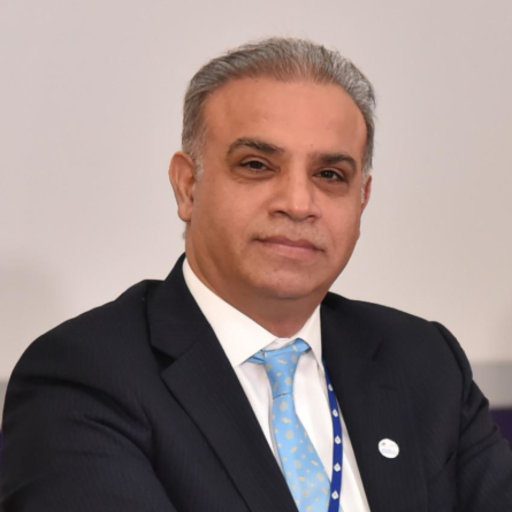
Mahjoob Zweiri
Professor in Contemporary Middle East Politics, Qatar University
